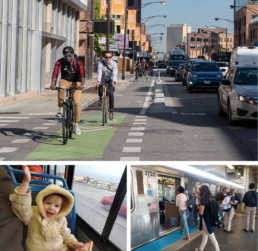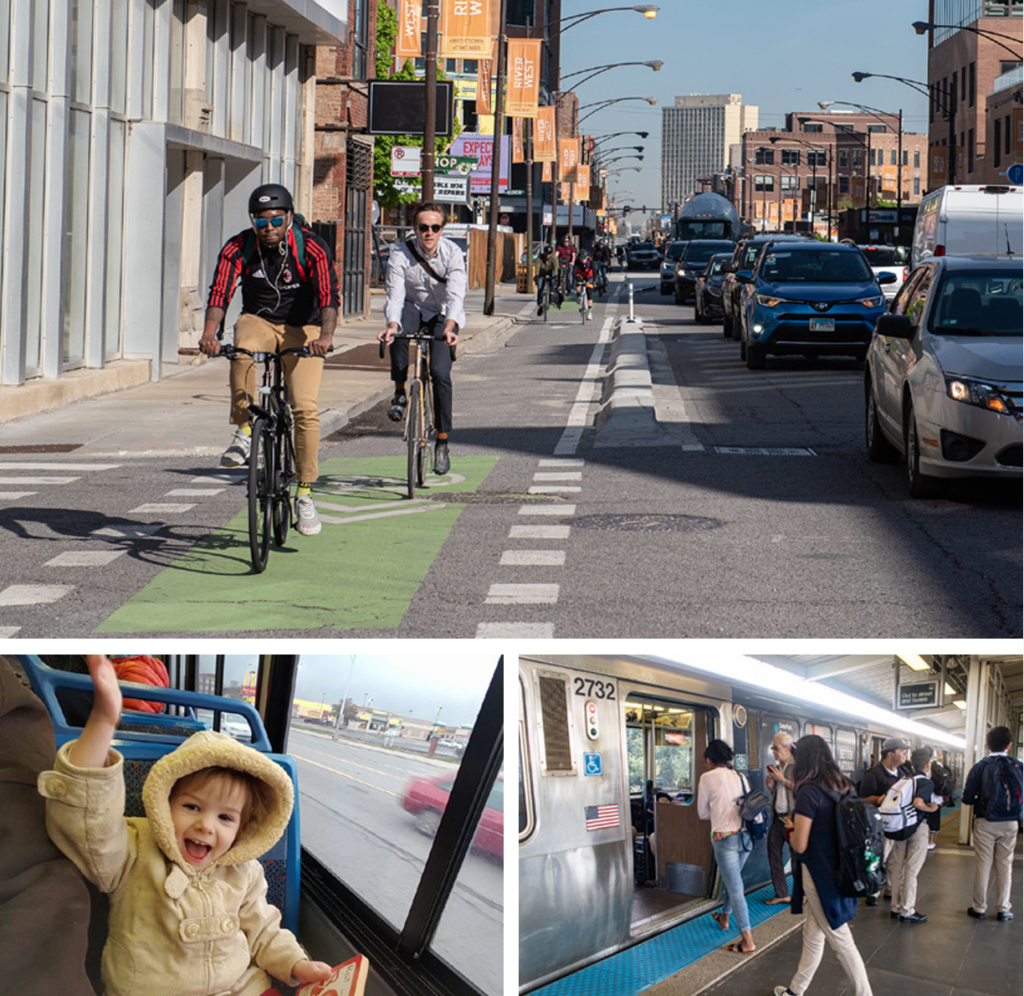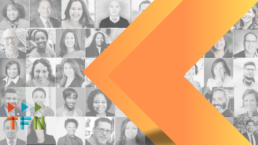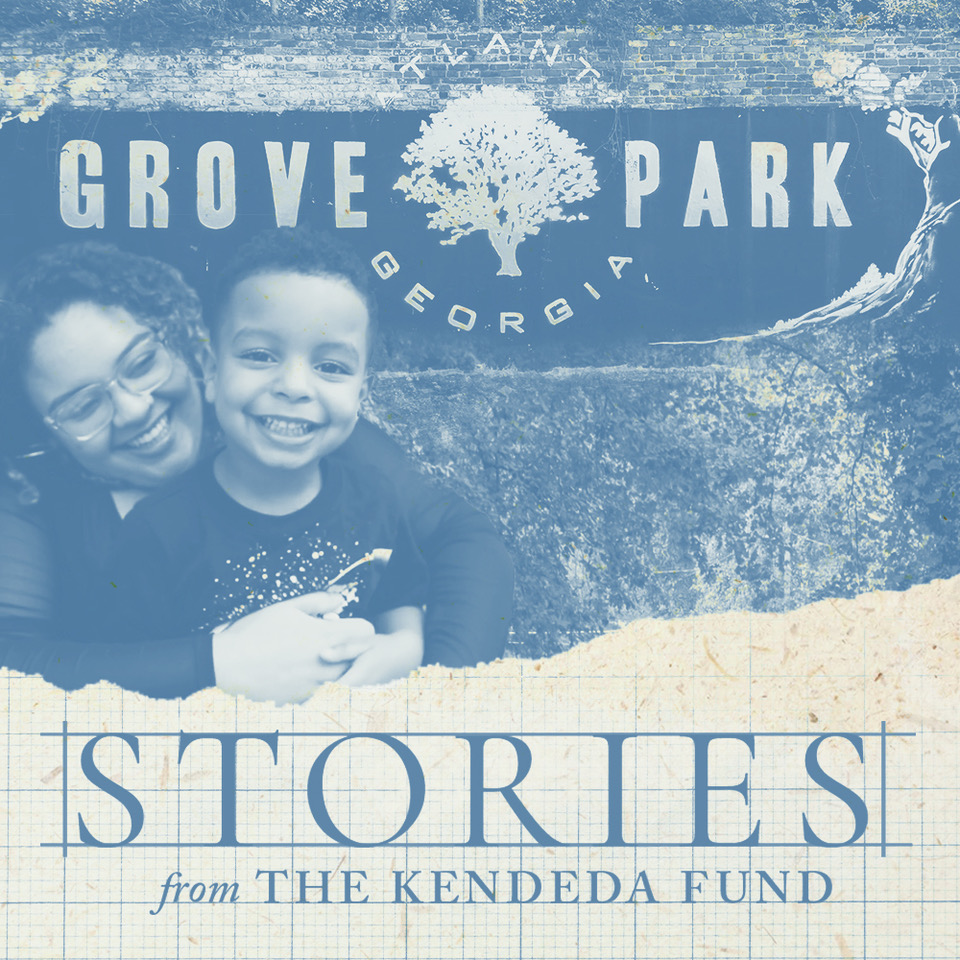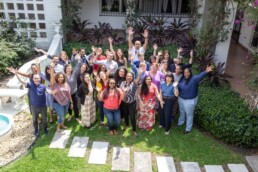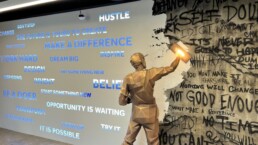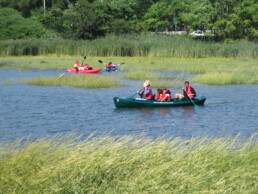From PLACES Fellow to President & CEO: Dion Cartwright tapped to lead The Funders Network
BY Don Hickman, Chair, TFN Board of Directors
When TFN President and CEO Pat Smith announced her retirement this summer, we began the daunting but admittedly exciting work of finding a successor – one with the vision, values and strategic dexterity needed to lead our network of changemakers committed to environmental, economic and racial justice.
It turns out we didn’t have to look very far.
I’m thrilled to announce that Dion Cartwright – TFN’s senior director of equity initiatives and leadership development and head of our PLACES Fellowship program – will be the next president and CEO of TFN.
Dion brings to her new role more than two decades of experience in the social sector and a passion for centering marginalized and underserved communities.
She also offers a singular perspective as the soon-to-be leader of this incredible network: A former program officer for the Baltimore Community Foundation, Dion is herself a PLACES Alum who went on to serve as chair of the Fellowship’s Advisory Board before joining TFN’s team full time in 2016.
Her trajectory – from funder and PLACES Fellow to TFN president and CEO – embodies TFN’s vision to cultivate courageous philanthropic leaders who are engaged, emboldened and equipped to bring about a just society.
“As both a PLACES Alum and a member of TFN’s leadership team, I’ve witnessed the tremendous progress we’ve made in advocating for community-led solutions and equity-focused actions that address an escalating climate crisis, widening wealth gap and other issues critical to our collective wellbeing,” said Dion.
“The growth I’ve seen is amazing, and the opportunities I see ahead are inspiring," she said. "I am truly honored to lead TFN as we work to create a political home for philanthropic leadership that is boldly and unapologetically committed to advancing racial equity, inclusion and justice."
Passing the Baton
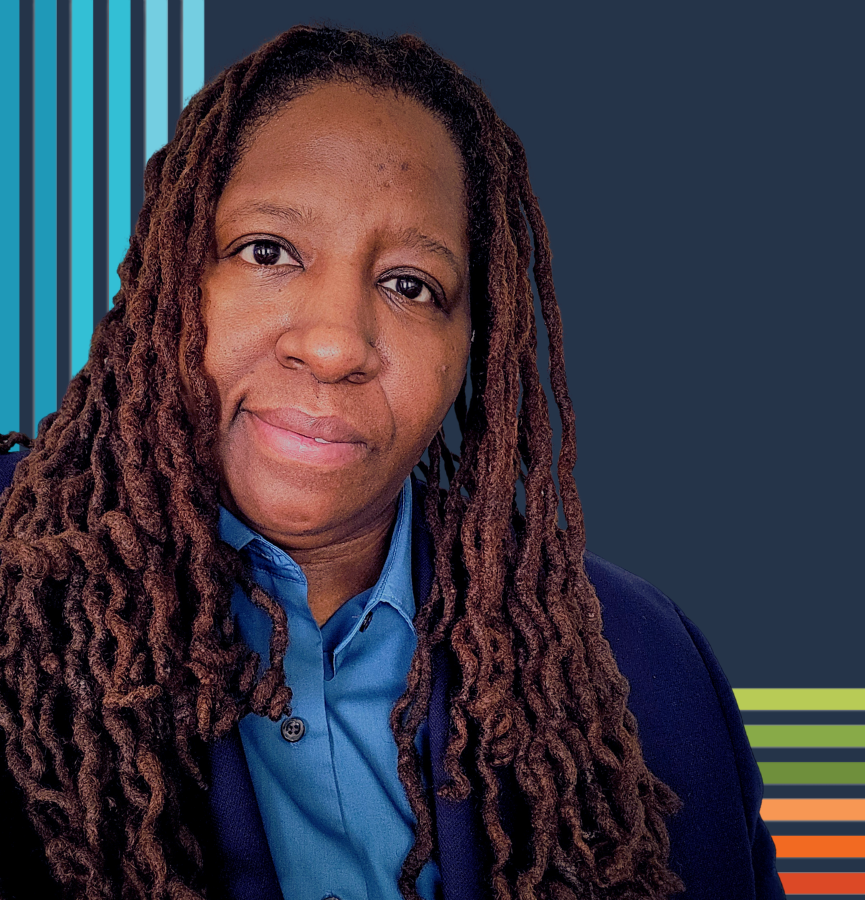 Dion will take on her new role in January, following Pat’s official retirement. We are grateful for Pat’s service to TFN over the past five years, a tenure that included helping the network and its staff weather the most challenging period of the COVID pandemic. Under her leadership, TFN also established a new strategic framework and its first racial equity action plan, ensuring TFN remains a thriving and sustainable organization with an explicit, foundational and cross-cutting approach to addressing systemic racism and its impact on the people and places we serve.
Dion will take on her new role in January, following Pat’s official retirement. We are grateful for Pat’s service to TFN over the past five years, a tenure that included helping the network and its staff weather the most challenging period of the COVID pandemic. Under her leadership, TFN also established a new strategic framework and its first racial equity action plan, ensuring TFN remains a thriving and sustainable organization with an explicit, foundational and cross-cutting approach to addressing systemic racism and its impact on the people and places we serve.
Pat is quick to note that Dion played a key role in guiding the creation of TFN’s racial equity framework, and has been instrumental in supporting a culture of accountability and transparency as we work to implement those goals.
“I’m extraordinarily excited about the next chapter for TFN under Dion’s leadership,” said Pat, who announced her planned retirement in June. “It’s been a pleasure having the opportunity to work with Dion, and I’ve benefitted from her counsel on both a personal and professional level. I’m confident she is the right person to help guide TFN toward the future.”
Shortly after Pat shared her retirement plans with the board, we hired an executive search firm to launch a national recruitment effort that resulted in dozens of highly qualified and deeply passionate candidates from across the philanthropic and nonprofit sectors.
I’d like to acknowledge my fellow TFN board members for their hard work and diligence during this process, including the board’s selection committee members.
TFN’s Board of Directors has created a transition task force that will work closely with Pat, Dion and the rest of the network’s leadership team to ensure a seamless changeover and the continued momentum of the PLACES Fellowship and Alumni Network. While we do not have immediate plans regarding who will replace Dion as head of the PLACES program, Talissa Lahaliyed, TFN’s equity programs manager, will serve as point person for PLACES during the transition period.
Power of PLACES
The PLACES Fellowship is one of TFN’s most significant efforts to foster leadership in the philanthropic sector.
Established nearly 15 years ago, PLACES – which stands for Professionals Learning About Community, Equity and Sustainability – is designed to give grantmakers the tools and resources to understand, challenge and change systemic inequities.
More than 180 PLACES Fellows have completed this rigorous program over the years. PLACES Alums hail from all corners of the United States and Canada and represent national, regional and community foundations, intermediaries, and philanthropy serving organizations.
Their impact can be seen within their own institutions and across the broader philanthropic sector. PLACES Alums have also contributed to an impressive leadership pipeline within TFN, lending their talents and expertise to our working groups, steering committees and TFN’s Board of Directors, where they currently occupy five of 13 board seats.
“PLACES was created to help funders work through the systematic challenges of creating meaningful change for underserved and left-behind communities,” said Sheena Solomon, executive director of The Gifford Foundation and vice chair of TFN’s Board of Directors. “Through Dion’s leadership the program has become a true demonstration of what racial equity work can look like in the sector.”
A PLACES Alum and chair of the PLACES Advisory Board, Sheena also chaired the board’s leadership selection committee.
“Dion’s new role is an affirmation of her impressive skills as well as TFN’s investment in her and the PLACES program,” said Sheena. “This work requires a deep level of hope and enthusiasm for the future of philanthropy. Dion carries those qualities with her everywhere she goes and there is no one better to continue inspiring them in others.”
Leadership Journey
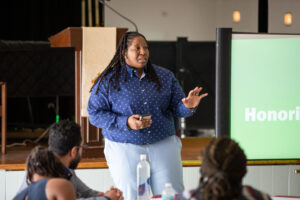 Dion found her calling to lead at an early age, starting with the youth ministry at her church in Lynchburg, Va., where her late grandfather was pastor. She also honed her skills on the basketball court, playing forward and center in local sports leagues and eventually volunteering as a youth basketball coach in the Amateur Athletic Union.
Dion found her calling to lead at an early age, starting with the youth ministry at her church in Lynchburg, Va., where her late grandfather was pastor. She also honed her skills on the basketball court, playing forward and center in local sports leagues and eventually volunteering as a youth basketball coach in the Amateur Athletic Union.
A student-athlete at Gardner-Webb University in North Carolina, where she studied computer science and business administration, Dion worked for the Baltimore Community Foundation’s Community Investment team for 15 years before joining TFN. In 2015, Dion was named one of the Daily Record’s Leading Women Under 40. She currently serves on the Board of Directors for Emerging Practitioners in Philanthropy and on the United Philanthropy Forum’s Racial Equity Committee. She previously served as the inaugural board chair of the Baltimore Children and Youth Fund, a nonprofit organization created to support Baltimore’s youth, following the death of Freddie Gray while in police custody.
She’ll continue to be based in Baltimore, which coincidentally is the site of TFN’s 2025 Annual Conference. As a reminder, we decided not to hold our Annual Conference in 2024 in order to foster a smooth and productive transition for TFN’s incoming president and CEO.
But there will be ample opportunities to connect with Dion and the rest of TFN’s team – both virtually and in person – in the coming year, including the Smart Growth California Funder Summit in Sacramento and the joint Spring Convening of our GREEN, Urban Water and Mobility & Access Collaborative funders in Austin.
“I’ve been blessed to work alongside such a talented group of individuals at TFN for so many years,” said Dion. “And I look forward to supporting a culture of shared collaboration, growth and learning as we chart a new path forward, together.”
On behalf of TFN’s community, please join me in congratulating Dion as she takes on this new challenge.
About the Author
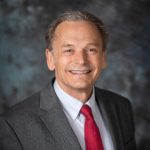 Don Hickman is chair of TFN's Board of Directors. He is vice president for community and workforce development at the Initiative Foundation in Little Falls, Minn.
Don Hickman is chair of TFN's Board of Directors. He is vice president for community and workforce development at the Initiative Foundation in Little Falls, Minn.
TFN Leadership Transition: Resources & Further Reading
Moving Forward, With Gratitude | A Message from TFN President & CEO Pat Smith
Building Equity & Igniting Action | TFN’s Strategic and Racial Equity Frameworks
PLACES X: Stories of Impact – Dion Cartwright | PLACES 10th Anniversary (Access the full multimedia PLACES X archive here.)
TFN President & CEO: Position Details and Desired Qualifications | McCormack + Kristel
➡ Become a TFN Member! | Learn More About Membership Benefits & Eligibility
Hitting Pause on Twitter/X: Our Commitment to Inclusive, Equitable Spaces – In Person and Online
BY TFN STAFF
This summer, our team decided to pause our presence on Twitter/X, given the instability of the platform — and more importantly, to gauge whether it still aligned with our values.
TFN is committed to supporting and inspiring courageous philanthropic leaders who are engaged, emboldened and equipped to bring about a just society. Social media is just one of the tools we use to connect our community of changemakers working toward racial, economic and environmental justice in communities across the U.S. and Canada.
It’s become increasingly clear that TFN values do not align with those of the social media platform formerly known as Twitter, and don’t support remaining active on this platform in its current iteration. That’s why we’ve decided not to engage on X for the foreseeable future.
Changes to the way X moderates content (including laying off thousands of people who monitored for hate speech and threats of violence) have led to increased digital harassment of marginalized communities and mis/disinformation on issues that are core to our collective health, wellbeing and shared humanity. That the platform is led by someone whose own public statements and actions undermine, or are often in open conflict with, our values also factored heavily in our decision.
We also recognize that much of the online community we’ve cultivated on this site has moved on to other platforms. We've noticed a decrease in engagement on Twitter/X while our engagement on other platforms — notably LinkedIn — has increased dramatically.
In the past few months, we’ve doubled down on other social media platforms and have improved the way our members can connect with our TFN team and with each other.
Here’s where you can find us:
- You can connect with us on LinkedIn and Instagram.
- Sign up for our newsletters and updates.
- Engage with one of our many working groups.
- If you’re a TFN member, be sure to sign up for our TFN Member Portal, which offers a host of resources — including a searchable database of funders, making it easier for you to connect and engage with other leaders in the sector as well.
TFN’s mission-driven communications goals include sharing knowledge, amplifying voices and inspiring action across our network and beyond. While we put much thought into this decision, in consultation with our team and TFN board, we know there’s not a one-size-fits-all approach to how individuals and organizations choose to connect in digital spaces.
We acknowledge that many of our members, partners and team members continue to see value in engaging on X as a means of organizing and advocating for social change, and we support their right to make decisions that suit their needs — and the communities they serve — as they see best. This decision only applies to our official TFN handle (@Funders_Network).
We’ll continue to evaluate our communications goals and strategies to ensure they remain aligned with TFN’s values of creating equitable, inclusive, constructive places to come together — both in person and online.
We encourage you to be part of this conversation, and to share your thoughts, experiences and questions with us. If you have any questions or feedback about TFN's communication goals and strategies, please reach out to Senior Communications Director Tere Figueras Negrete at tere@fundersnetwork.org.
We hope to hear from you!

New TFN Report Explores Midwest Transportation Advocacy, Funding & Opportunities
BY TFN Staff
We’re excited to share a new TFN report that examines how advocates and their foundation partners are working to build more sustainable and equitable transportation systems across the Midwest — and which includes key takeaways and lessons for funders in the region and beyond.
The Midwest Transportation Landscape Assessment: A Roadmap for Funders explores the transportation challenges and opportunities in seven Midwestern states: Illinois, Indiana, Iowa, Michigan, Minnesota, Ohio and Wisconsin.
These seven Midwest states will spend a combined $36 billion on transportation in 2023, thanks in part to landmark federal funding bills passed in recent years. This infusion is bringing renewed attention to state-level systems and structures, and to the opportunity to meaningfully reduce climate-destroying emissions.
The need for focused and funded advocacy work to ensure that the dollars are spent wisely and equitably — and that the moment is not wasted — has never been greater.
This report focuses on work to accelerate the shift to electric vehicles and increase public investment in and accessibility of transit, walking and biking. Interviews with dozens of funders, advocates, government staff and thought leaders offer a host of recommendations that can be boiled down to one imperative: Build power among those fighting for change.
Philanthropy has played a critical role in nurturing important work, advancing ambitious goals, connecting and sustaining key players across cities and states, and amplifying the concerns of those most impacted by racial and environmental inequities. Nonetheless, transportation advocacy is deeply under-resourced, particularly when measured against its climate impacts.
The goal of this report is to provide a roadmap for funders to support the growing body of work around transportation reform, including examples of philanthropic engagement and guidance for increased, effective investment.
The Midwest — the heartland of our nation — is rich with infrastructure, industry and ingenuity.
We can show the country what it takes to build a climate resilient and net zero transportation system.
— Tenzin Dolkar, McKnight Foundation
Midwest Transportation Landscape Assessment: A Roadmap for Funders
–
The Midwest Transportation Landscape Assessment: A Roadmap for Funders was researched and written by Zoe Kircos and Martha Roskowski through TFN’s Mobility and Access Collaborative.
Conducted during winter and spring of 2023, the report is based on interviews with nearly 80 nonprofit leaders, advocates and funders. It was funded by McKnight Foundation, with additional support from TransitCenter and SRAM Cycling Fund.
Martha, who is the program lead for TFN’s Mobility & Access Collaborative and principal at Further Strategies, helps agencies and organizations develop strategies to advance sustainable mobility and equitable access. Before launching Further Strategies, she helped cities build better bike infrastructure at PeopleForBikes and ran the City of Boulder’s planning, programs, and policy efforts, including launching the local bike share program. She led the campaign on the federal transportation bill that created the national Safe Routes to School program.
Zoe, a partner at City Thread, brings 20 years of philanthropy, development, communications and grant management expertise – and her own blend of humor and compassion – to all her work. Building thoughtful collaborations and centering the needs and vision of project partners has been an essential part of her approach since entering the non-profit field. Zoe is recognized for her efforts to integrate equity into shared micromobility and disseminate the stories of people doing innovative and powerful social and transportation justice work in their communities.
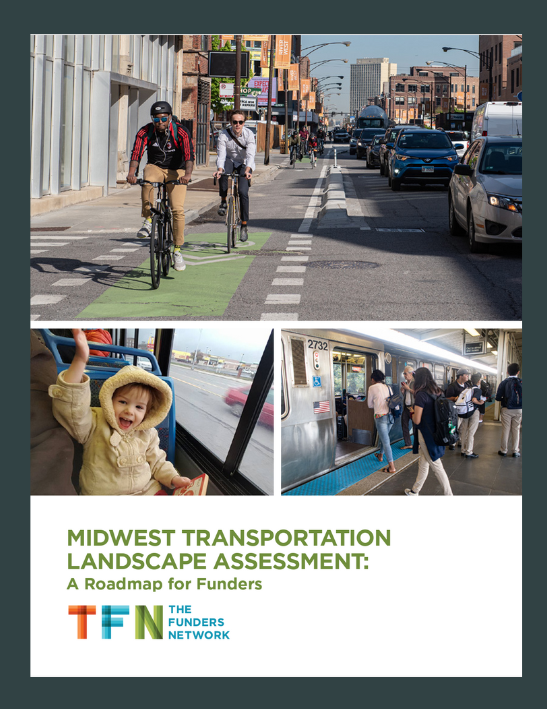
➡ Download the full report & executive summary
➡ Access a web-friendly version
Connect & Engage
TFN’s Mobility & Access Collaborative is an action-oriented effort that recognizes the urgency for ambitious and quickly implemented solutions to limit the devastating impacts of climate change. The collaborative brings together place-based, regional and national funders to share stories, examine best practices and explore critical issues.
➡ Do you want to receive newsletters and other resources from TFN’s Mobility & Access Collaborative? Sign up here!
➡ Do you want to connect with fellow grantmakers interested in mobility and transportation issues in the Midwest? TFN’s Member Portal offers a database of funders searchable by geographic region, areas of interest, and more!
(Please note that the Member Portal is only available to those affiliated with TFN member organizations. Visit our Become a Member page for more information on membership categories and benefits.)
Introducing TFN's New Member Portal!
BY Tere Figueras Negrete, Senior Director of Communications
You asked, we listened...
We’re excited to announce that TFN's new Member Portal is live on our website!
This password-protected, member-only portal is designed to support collaboration, deepen understanding and spark connections within our network and beyond.
Funders across TFN's community of working groups, initiatives and other programs have often asked for a way to reach out to fellow grantmakers who are based in their area or working on similar issues.
Our new peer-to-peer platform will allow TFN members to do just that, as well as access learning resources and recordings, update individual TFN profiles, and engage with our working groups.
How do you access TFN's Member Portal? Just fill out this simple sign-up form. You'll then receive a welcome email with your username and login instructions.
Here's what you'll be able to do once you have access:

➡ Curious which funders are active in the Southwest? Or who has an interest in environmental justice?
Our Funder Directory is a searchable database of funders whose organizations are members of TFN, or who have engaged with TFN events and programming in the recent past.
You can search by several categories, including by funder name, organization, geography and topics of interest.
Tip: You have control over what information is shared about you in the Funder Directory. Use the Update Your Profile tool to manage your contact information, areas of interest and sharing settings.

➡ Did you miss TFN's latest webinar? Are you eager to dive deeper into a resource shared during an event?
Explore the Event Resources featured on TFN's Member Portal, which include recordings of our learning events and accompanying resources.
Please note that we're only sharing recordings from the relatively recent past, and only when participants have been alerted that the event is being recorded. For example, certain peer-to-peer learning sessions and other virtual convenings have not been included, as facillitators often ask for those events to remain "off the record" to encourage frank exchanges of ideas and experiences.
Tip: This feature also links directly to TFN's Event Calendar, so you can see and sign up for future events.
We'll continue to add to this section, so be sure to check back and see what's new!

➡ Do you want to get involved in a TFN working group? Or maybe share your new title or expanded grantmaking portfolio?
Update your TFN Program Affiliations in the Member Portal, which features a menu of our working groups and collaboratives. Follow the links to learn more about each program area and sign up to indicate your interest in receiving news, updates and invites to webinars and other learning opportunities.
Tip: If you want to see which funders are engaged in what TFN working group, just search the Funder Directory under "program participation."
Do you want to let us know that you've changed jobs, or share more about your grantmaking focus? Click on the Update Your Profile to access your individual TFN profile, allowing you to make updates to your title, organizational affiliation, focus area, and other information.
Updating your profile information will help enrich the Member Portal overall — making it easier for you and others in the network to engage with fellow funders whose grantmaking interests align.

Why can't I access TFN's Member Portal?
Please note that you must be affiliated with a TFN member organization in order to access TFN's Member Portal. If you don't see your organization listed on the sign-up form, but believe you are affiliated with a TFN member organization, please reach out to membership@fundersnetwork.org. (Learn more about TFN membership options on our website.)
Does the Funder Directory only include funders who work at TFN member organizations?
Nope! Any funder who has engaged with TFN in the recent past, including attending our Annual Conferences or learning webinars, and who have agreed to share their information are included in the Funder Directory. (You'll see a checkmark noting which organizations are TFN members.)
What if I don't want my information included in the Funder Directory?
No worries. You can update your sharing settings in the Update My Profile section.
What if I see someone listed who no longer works at my organization?
Please let us know! Kindly send an email to membership@fundersnetwork.org and we'll follow up.
Is there a Member Portal Code of Conduct?
You betcha. We want to ensure that TFN’s Member Portal remains a considerate, caring and useful resource. You'll be asked to agree to our Code of Conduct when you sign up for the portal, acknowledging that:
- TFN does not allow language that harasses, threatens or defames others, or language that is derogatory toward people or communities based on, but not limited to, race, ethnicity, gender, sexual orientation, gender identity, religion or ability status.
- TFN does not allow the data and resources found on the portal to be downloaded or repurposed in any way without appropriate consent of relevant individuals and creators. In particular, do not add contact information found on the portal to your organization's databases without consent of the individual contact.
- You will not use the portal as an opportunity for fundraising pitches or any other solicitations for financial or contractual support.
- Electioneering or lobbying activities are prohibited. (For guidance on how to effectively advocate as a nonprofit or philanthropic organization, we encourage you to visit the resource pages for Bolder Advocacy, a program of the Alliance for Justice.)
Do you have additional questions or feedback about TFN's Member Portal? Please reach out to our team at membership@fundersnetwork.org.
Going PLACES: Heartache drives my purpose
BY Ronda Lee Chapman, National Equity Director, Trust for Public Land, and 2023 PLACES Fellow
"Keep Portland Weird" is a vibe, albeit one that has perhaps run its course.
I lived in Stumptown for just over a decade in the early aughts. It’s where I cut my teeth as a sustainability generalist, dug deep into diversifying the environmental movement, and gained a rich understanding of what it takes to bring an equitable city to life or not.
The 2023 PLACES Fellows gathered in Portland, Ore., for our first retreat in April. I was both excited and anxious to revisit the place that had shaped a significant decade of my life professionally and personally. I was ready to experience the liberal vibrancy, the amazing food, the emerging multiculturalism, the liberal politics.
What happened instead was profoundly different.
Well, except for the rain. That was consistent and appropriate.
Before I go further, I feel compelled to shout out to this blog by another member of our 2023 PLACES cohort, Shilpa Shankar, that shares not only her beautifully worded reflections, but some of the details about our Portland journey. My point of view will be a touch different due to my previous relationship with the town.
As my co-fellow Joy Webb and I were walking through downtown, we talked about what I coined “the myth of the liberal west:” the notion that the Best Coast is rife with utopian opportunities in which rainbows and unicorns (Black and white ones!) are abundant. A place the rest of the liberal U.S. can look upon with envy and aspiration. It’s climate ready, Mother Earth-loving, vegan friendly, creative, kind, multicultural, and equitable.
But as Joy and I stepped over puddles and around unhoused human beings slumped against buildings, things felt heavy.
As we ventured on to the light rail, we noticed most riders relied on the train to keep them dry, provide a space to sleep, and offer shelter for soothing their addictions.
How can it be that so many folks meandering through the city could be in such need? Why were there so many security guards posted at the entry of commercial buildings? Why was the CVS essentially void of products? Why was there such a prevalence of closed businesses? Why were the downtown streets void of locals? What was happening to this place I once called home?
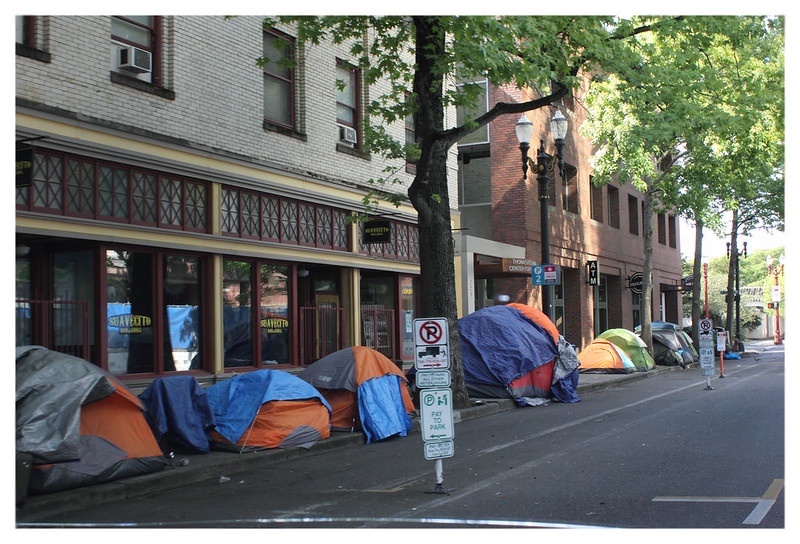
Portland, like many cities, is struggling to address the needs of unhoused people, many of whom rely on tents for basic shelter.
Photo credit: dr.ōzda | Flickr
Since PLACES was there, I took the opportunity to join a longtime Portland friend for a walk at Mt. Tabor one evening. She shared what she and her husband had been experiencing in town. They recently moved to an adjacent county because Portland was taking a turn for the worse and they no longer felt safe from street harassment and multiple home and car burglaries. It was affecting their psyche and their wallets.During my 2001-2012 stint in PDX, local residents seemed to be forever protesting for any matter pertaining to justice and equity. Protests were part of the fabric and while it wasn’t my vibe, I was always pleased to see people organizing for the ideological opportunities I mentioned before. But then came 2020, when the whole world was protesting for social justice. While I was no longer in Portland, I’ve been paying attention. Liberals were protesting per their norm, but it seems like something just snapped and they haven’t recovered.
According to an Oregon Public Broadcasting report from July of this year, hate crimes for the state are up 76% since 2020. “Anti-Black/African American bias continues to be the largest category, making up a quarter of the reports. Bias-motivated reports targeting people who identify as LGBTQ+ increased between 2021 and last year, with reports targeting sexual orientation up 97% and gender identity up more than 150%. Reports targeting religion also increased, with antisemitic reports making up 75% of anti-religious reports since 2020. Anti-Asian reports decreased slightly last year compared to 2021 when such reports rose as a result of hateful rhetoric related to the COVID-19 pandemic.” Portland’s and Oregon’s bigotry-filled,racist origin story has reared its ugly head.
It's also an economic issue — though poverty and racism are so intertwined, so no surprises there. I found this article from the Willamette Week, the local paper. The report refers to an “out migration” over the past three years. “Most of the people who spoke with WW were leaving for two reasons: high taxes and a growing sense of danger.”
According to a lifelong Portland resident quoted in the article, up until 2020, “[n]obody ever wanted to leave Oregon. It’s a beautiful place. Most evacuees are high-wage earners who are fed up with the crime, taxes and homelessness, in that order. There’s an ugly spiral.”
Listen, if you don’t know me, you might think I’m a bit of a downer at this point.
But it’s precisely because I am, by nature, a joyful soul whose heart was aching at what I witnessed. I regard Portland as a place that set me up for many of the successes I experience today.
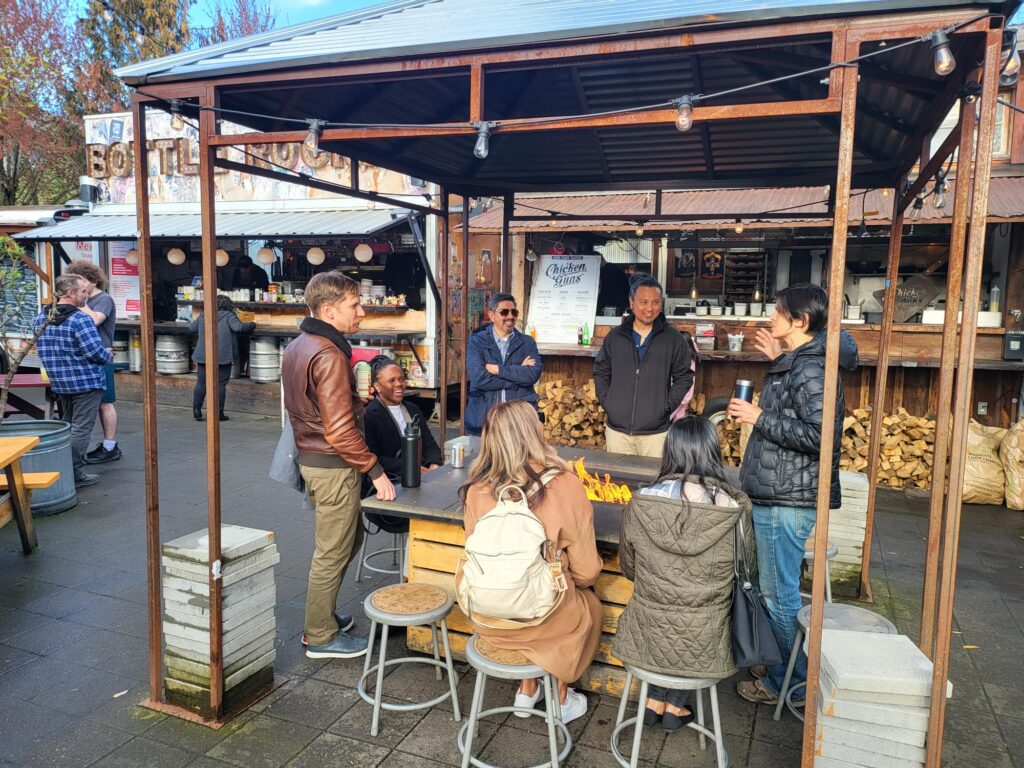
2023 PLACES Fellows traveled to Portland, Ore., for the first site visit of their year-long learning journey.
Photo credit: Dion Cartwright
Then it occurred to me on my flight home to D.C.: this is why I am here with PLACES and in the nonprofit sector.
This heartache drives my purpose because I believe in justice, humanity, equity, and fairness.
And I am aware of the role philanthropy plays in addressing some of these issues — for better or worse.
So here we are. Collectively learning, adapting, and pushing to be on the right side of history. We are the consciousness-keepers who provide the wood for the organizers to build the table.
It’s so important for us who claim space in philanthropy to get out from behind our desks and get into the community. But given the demands of our jobs and everyday lives, it can be difficult for us to do so.
That’s one of the many gifts PLACES offers: The fellowship’s site visits are both an opportunity and a reminder to be intentional in finding time to physically and mentally be in the spaces and places most impacted by injustice.
Even if — especially if — it makes your heart ache.
About the Author
Ronda Lee Chapman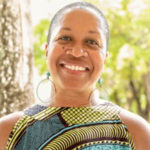 is the National Equity Director at the Trust for Public Land, where she works to bring parks and nature to the places, people, and communities that can most benefit as a matter of health, equity, and justice. She is also a member of TFN’s 2023 PLACES Cohort.
is the National Equity Director at the Trust for Public Land, where she works to bring parks and nature to the places, people, and communities that can most benefit as a matter of health, equity, and justice. She is also a member of TFN’s 2023 PLACES Cohort.
Featured image at top: Portland skyline, Jonathan Miske | Flickr
Stories from the Kendeda Fund: Podcast series chronicles a remarkable 30-year journey
BY Tere Figueras Negrete, Senior Communications Director
When Tené Traylor was hoping to join the team at the Kendeda Fund, she had one final hurdle: a breakfast meeting with founder Diana Blank, whose personal wealth fueled Kendeda’s impressive grantmaking across a host of environmental and social causes.
“I was extremely nervous. Because I had a picture of a very, just, elaborate person,” Traylor recounted in an episode of the podcast Stories from the Kendeda Fund. “I needed her to have on a big hat and at least dark shades.”
She was anxiously scanning the restaurant in search of someone who fit her mental image of a glamourous socialite when a decidedly down-to-earth – and plainly dressed – woman greeted her.
“I was walking back to the front of the restaurant and this woman looked up at me with the biggest smile, and she was like, Tené?” prompting Traylor to wonder: “How does this random woman know who I am?”
The woman introduced herself simply as Diana.
“An overwhelming sense of ease took over me. Because she was exactly who I wanted her to be, but exactly who I had not imagined her to be,” said Traylor, who now oversees Kendeda’s Atlanta portfolio.
Traylor’s story is just one of the many candid, insightful and frequently funny stories captured in the nine-part series chronicling Kendeda’s 30-year philanthropic journey.
The Atlanta-based foundation, a member of The Funders Network, has committed to spending out the majority of its assets by the end of this year. By that time, the foundation anticipates its total grantmaking will have exceeded $1.2 billion.
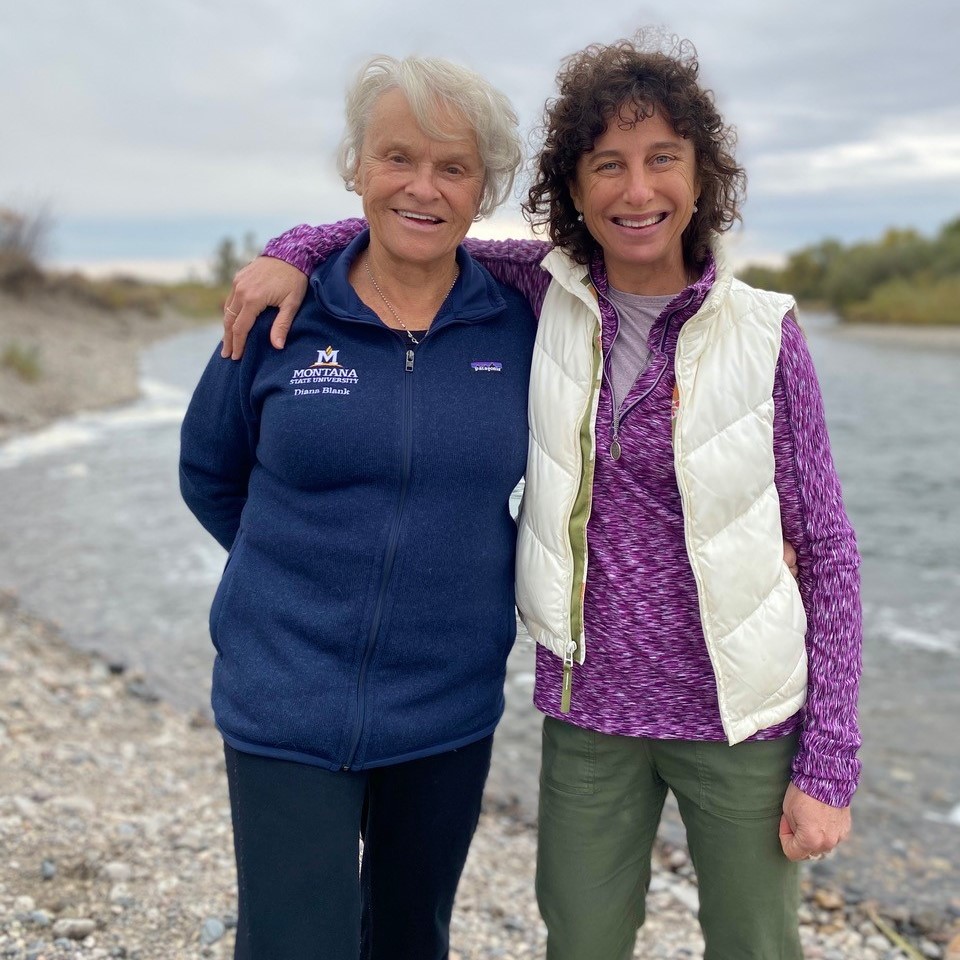
The Kendeda Fund's founder, Diana Blank, and her daughter, Dena Kimball, the foundation's executive director.
Photo credit: Kendeda Fund
In the series’ debut episode, Blank sits down with her oldest daughter and the fund’s executive director, Dena Kimball, for a wide-ranging conversation about Kendeda’s origins, its impact and what it means to give away more than $1 billion in your lifetime.
“I am just this person who had this money to give away,” said Blank in the episode, who confessed an initial ambivalence to the wealth she acquired after amicably divorcing her husband, Home Depot co-founder Arthur Blank, in the early 1990’s. “I didn’t want my friends to look at me differently. I just wanted to be treated as a person and not as a philanthropist.”
Three decades later, Kendeda’s grantmaking now supports a number of core issues, including efforts to prevent gun violence, help veterans heal through nature , empower girls across the globe, and place-based grantmaking focused on Atlanta and Montana that prioritizes issues of equity, livability and improved connections to the natural environment. Kendeda is also home to the People, Place and Planet program, which aims to address social and ecological challenges – such as the climate crisis and economic inequities – through community-based solutions and leadership. (The People, Place and Planet program is led by Diane Ives, who sits on the leadership committees of TFN’s GREEN working group and Partners for Places grant program.)
The podcast series covers a range of issues, including the second episode titled "Towards Equity: A Grove Park Story."
Stories from the Kendeda Fund, executive produced by Kimball and Kendeda’s communication lead, David Brotherton, includes episodes on a range of topics, including economic inequity in Atlanta’s Grove Park neighborhood, the power of documentary films to shift narratives, and constructing the greenest building in the Southeast.
Blank, who calls Kimball “her guiding light,” also shares her thoughts on the spend-out in the series.
“There is a current thinking now, instead of having these legacies that go on and on, from generation to generation, to do it now. Because there’s a need now,” she said.
Kimball, who is also Kendeda’s Fund Advisor for Girls’ Rights, assured her the team is up to the challenge.
“We’re landing the plane. It will be landed by the end of 2023,” she tells her mother. “I want you to know that you can enjoy your coach seat. Look out the window, take a nap, eat some peanuts. The team, collectively, we’ve got this.”
➡ Listen: Stories from the Kendeda Fund is available on Spotify and Apple Podcasts.
➡ Go deeper: Read this excellent story about the Kendeda Fund and Diana Blank’s philanthropic journey by The Chronicle of Philanthropy’s Drew Lindsay.
➡ Stay connected: Join Kendeda's mailing list for more insights about the spend-out. If you aren't already subscribed, go to their website and add your email to the pop-up prompt.
We're Hiring: TFN President & CEO! | Applications Now Open
BY TFN STAFF
Are you a visionary, dynamic and strategic leader with a passion for helping communities become more sustainable, prosperous, healthy and just?
We're excited to share that applications are open for the position of TFN's president and CEO. This is an extraordinary opportunity for candidates who believe in leveraging philanthropy's unique potential to advance racial, economic and environmental justice.
Details about this fully remote position, including compensation, are available here.
The search is being led by McCormack + Kristel, a national provider of executive search consulting services for nonprofit and philanthropic organizations.
If you're interested in joining TFN's amazing team, please submit a résumé and cover letter that describes your qualifications and interest in TFN's mission through McCormack + Kristel's application portal.
Applications will be accepted until the position is filled. (Please note that applications may only be submitted through the application portal.)
If you have any questions about the candidate profile or recruitment process, kindly reach out to Michelle Kristel, managing partner, and Dr. Zaria Davis, search consultant, at search@mccormackkristel.com.
Leadership Transition & Annual Conference
As part of our goal to foster a smooth and productive transition for TFN's new president and CEO, we will be taking a break from hosting our Annual Conference in 2024.
We truly value and enjoy the opportunity to gather at our Annual Conference every March. But given that TFN President and CEO Pat Smith will retire at the end of this calendar year, we recognized the need to afford the network's new leader the grace and space to settle into their new role.
We nonetheless look forward to several opportunities to gather in person during 2024, including:
- Winter 2024: TFN's Smart Growth California initiative is planning a funder summit in Sacramento. (Their Los Angeles Funders’ Collaborative, San Joaquin Valley Funders’ Collaborative, Climate Funders' Collaborative, and Statewide Steering Committee are also planning to meet in 2024.)
- Spring 2024: Three TFN working groups — GREEN, Mobility & Access Collaborative, and Urban Water Funders — will host a joint convening in Austin,Texas.
- Fall 2024: TFN's Inclusive Economies working group will hold its annual gathering in the fall, as will the PPREP learning cohort.
- PLACES: In addition to in-person events for the PLACES 2024 Fellowship Cohort, PLACES will hold a PLACES Alumni Gathering and is hoping to schedule alumni-led regional gatherings in 2024.
'An Outrageous Irony': TFN's Pat Smith Responds to the Supreme Court's Affirmative Action Ruling
BY Pat Smith, TFN President & CEO
I was wrapping up my visit to Morehouse College, a campus that is a living testament to Black excellence, leadership and achievement, when news broke of the U.S. Supreme Court's decision rejecting affirmative action at colleges and universities around the nation.
This ruling upends a policy that has been a pillar of higher education for more than a half century, one that provided a first step up the ladder of success and opportunity for generations of young Black and brown people, including myself.
Following the assassination of Dr. Martin Luther King, Jr. in April 1968, recruiters from the elite Seven Sisters colleges came to my Philadelphia high school to introduce Black students from socioeconomically disadvantaged backgrounds to their institutions. I ultimately chose to attend Mount Holyoke College on a full academic scholarship.
For me, it is an outrageous irony that this country has sanctioned exclusion on the basis of race since its founding, and yet we cannot take race into account when fashioning remedies to redress generational, systemic harm.
I'm struck by the further irony that this ruling does not apply to our nation's military academies, which may still consider race as a factor in admissions. Are we saying that Black, Latinx/e and other people of color aren't valuable to places of higher education, except where the United States has an interest in deciding who can fight — and die — for our country?
I went to college during the height of Vietnam War. I was devastated to learn recently that a predominately Black Philadelphia high school holds the distinction of having the most Vietnam casualties — more than any other single high school in the United States.
Justices Sonia Sotomayor and Ketanji Brown Jackson both offered blistering criticisms of the ruling and the myth of color-blindness in their dissenting opinions.
It beggars belief to say that race doesn't matter. It mattered in 1619. It mattered in 1968. And it matters still today.
Affirming our Commitment to Racial Justice
The affirmative action ruling was quickly followed by the Supreme Court's rejection of the Biden administration's student loan forgiveness plan, a decision that disproportionately impacts students of color.
Both rulings present significant challenges to helping this generation of young people of color close racial wealth gaps.
Many in the philanthropic sector are wrestling with the impact the decision will have on education and beyond: Namely, whether this will create a chilling effect on incorporating the values of racial equity and inclusion in hiring policies, grantmaking and advocacy work.
I speak on behalf of TFN’s team in saying that we are committed to centering racial justice in our work. And we are likewise committed to helping our members and partners navigate potential fallout from the recent Supreme Court ruling and other attempts to roll back progress and water down challenges to systemic racism.
That commitment is foundational to our work, which includes varied but intersecting funder focus areas such as climate action, transportation and land use policies, urban water strategies, disaster resilience, and economic injustice.
The Road to Justice
It was some comfort that I was surrounded by an amazing group of highly engaged and passionate funders when the court issued its ruling. We had gathered at Morehouse for TFN's 2023 Inclusive Economies Meeting: Pathways to Power & Prosperity, a two-day event designed to deepen understanding of systemic challenges to opportunity, examine effective and equitable funding strategies and explore collaborations that drive change.
I am grateful to my friend, Judge Glenda Hatchett — a Mount Holyoke College alumna — who stopped by to visit our Inclusive Economies gathering. In impassioned and impromptu remarks, she shared the extraordinary journey of Horace T. Ward, a graduate of Morehouse College, who was denied admission into the all-white University of Georgia Law School in 1950. He later became the first African American to serve on the federal bench in Georgia. In telling his story, Judge Hatchett reminded us that the Supreme Court’s decision on affirmative action is just another obstacle we can and will overcome on the road toward justice.
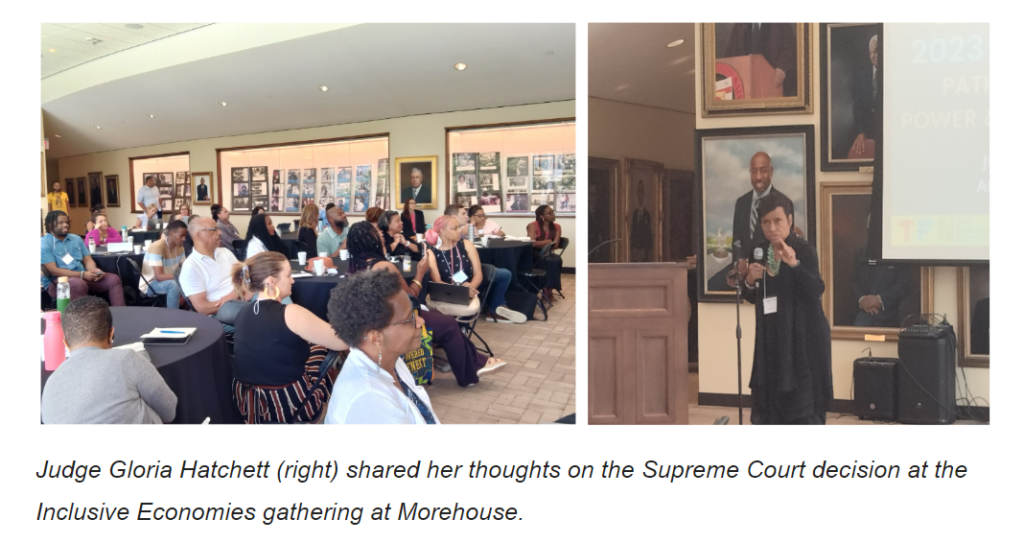
Stronger Together
Last week, TFN participated in a check-in call with other philanthropy serving organizations, organized by the United Philanthropy Forum, to process and strategize next steps in the wake of the ruling. As part of the briefing, we heard from ABFE, which is working with other identity-based PSOs — such as Native Americans in Philanthropy, Asian Americans/Pacific Islanders in Philanthropy, and Hispanics in Philanthropy — to craft a collective strategy.
We look forward to engaging with them on this effort and sharing resources and calls-to-action with TFN's community of funders and partners.
This recent Supreme Court decision is momentous, but not singular. It is part of an escalating effort to undo decades of progress around racial justice and bodily autonomy. One has only to look at TFN's home state of Florida, where LGBTQ+ rights are under assault, books are being banned from classrooms, and public colleges and universities are now forbidden from spending money on diversity, equity and inclusion programs.
Many of you are seeing similar conflicts playing out in your states, cities and school boards.
I encourage our community of funders to use their positions of trust and influence to advocate against these efforts. I also encourage you to continue to support leadership pipelines for people of color and other marginalized groups, including community-led nonprofits, grassroots organizations and chronically underfunded historically Black colleges and universities (HBCUs).
And I welcome you to share your own strategies, concerns and ways TFN can be of service to our collective goal of creating more equitable and just.
Additional Resources & Reactions
TFN is compiling reactions and resources from the philanthropic sector. Please reach out if you or your organization have additional links to share.
ABFE | Statement in Response to the US Supreme Court’s Affirmative Action Ruling
Barr Foundation | Undeterred, Our Work Continues
California Wellness Foundation | Cal Wellness Denounces SCOTUS Decision on Affirmative Action
The Annie E. Casey Foundation | Casey’s Response to the Supreme Court’s Affirmative Action Decision
Hispanics in Philanthropy | Injustice Unmasked
W. K. Kellogg Foundation | Statement on Affirmative Action Ruling & Additional Resources
The Kresge Foundation | College admissions affirmative action case won’t sway our dedication to equity
Latino Community Foundation | A Setback But We Will Press Forward, Together
McKnight Foundation | Statement in Response to Supreme Court Affirmative Action Ruling
Surdna Foundation | Surdna’s Unwavering Commitment to Advancing Racial Justice in America’s Communities
Featured Image: Artwork on display at Atlanta's Morehouse College, site of TFN's 2023 Inclusive Economies meeting.
Partners for Places Matching Grants: 10 U.S. communities receive more than $2.5 million for sustainability projects & climate action
BY TFN STAFF
Diverting food waste from a local landfill by turning it into fertile soil for neighborhood gardens.
Converting the site of a shuttered primary school into a much-needed community park.
Working with Native American high schoolers to create an interactive story map of schoolyard green spaces that celebrates their Indigenous histories and connections to the land.
These are just a few of the projects that will be supported by the latest round of Partners for Places grants, a joint initiative of The Funders Network and the Urban Sustainability Directors Network, which help fund efforts to create more equitable and resilient communities across the U.S.
In all, 10 U.S. communities will receive more than $2.5 million in Partners for Places matching grants to support sustainability efforts that focus largely on addressing the needs of historically marginalized communities that are disproportionately impacted by an escalating climate crisis and other environmental injustices.
These impactful projects bring together local governments, place-based funders, and frontline community groups. These relationships set the groundwork for even more action and collaboration at the grassroots level — fostering authentic engagement and input from populations and places that often bear the brunt of climate-fueled inequities but are often left out of decision-making processes.
The 10 communities receiving this latest round of Partners for Places grants are: Benton Harbor, Mich.; Charlottesville, Va.; Chelsea, Mass.; Cuyahoga County, Ohio; Flagstaff, Ariz.; Harris County, Texas; Marin County, Calif.; San Diego, Calif.; Seattle, Wash.; and Waco, Texas.
Meet the New Grantees!
In Flagstaff, Ariz., where project partners hope to create an interactive map of schoolyard green spaces that identifies gaps in access, members of a high school Native American student club will contribute stories, artwork and other content that spotlights Indigenous connections to the local land, plants and wildlife.
Cuyahoga County, Ohio will use Partners for Places funding to help convert the vacant site of a former primary school into a much-needed, 2.6-acre park that will provide a safe and accessible gathering place for the eastside Cleveland neighborhood of Hough.
Community leaders in Waco, Texas, hoping to reduce the environmentally damaging methane emissions generated by a local landfill, will use the matching grant funds to support a program that diverts extra food to those that need it and encourages converting food waste into nutrient-rich compost for gardening.
Charlottesville, Va., is also using their Partners for Places grant to support work at the intersection of food and climate justice, funding a collaborative partnership that will increase sustainable urban agriculture space on public land in a way that enhances climate protections and prioritizes grassroots community leadership.
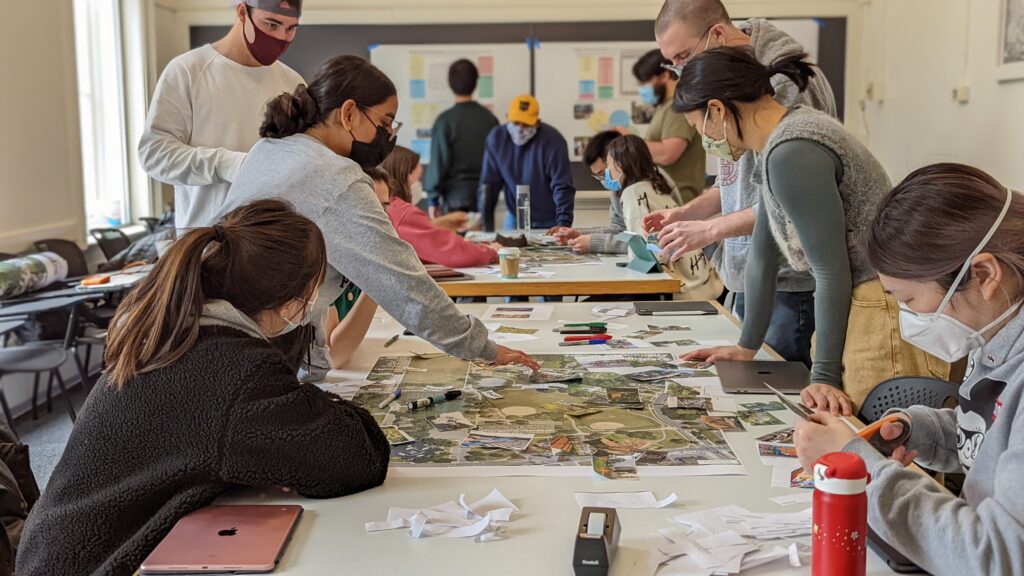
Fostering authentic and inclusive community engagement, especially in areas that have been racially and economically marginalized, is a critical goal fueling many Partners for Places projects.
Marin County, Calif., will use this new funding to support a climate justice collaborative that brings together leaders from two Bay Area communities that face imminent risk of climate impacts, and will include leadership development, advocacy training and outreach for frontline community organizations.
“The Canal neighborhood of San Rafael and Marin City—the two Marin County communities this grant will serve—are mere feet above sea level. Those of us that live and work here already see the impacts of sea level rise and increasingly unpredictable storms,” said Canal Alliance CEO Omar Carrera. “The Marin Climate Justice Collaborative will be led by residents and will use their wisdom to identify, create, and prioritize climate resiliency solutions, improving conditions for those that live here.”
Collaborative climate justice planning is at the heart of another Partners for Places project in Harris County, Texas, home to a low-lying coastal geography, one of the world’s largest industrial corridors, and a fast-growing population. The grant will help support the co-creation of local, implementable solutions with frontline community residents who have been most impacted by climate hazards and disasters.
Benton Harbor, Mich., will use the funding to support an initiative that will develop local and regional climate action leadership, foster community engagement and help create a climate action plan that outlines federal and state funding opportunities for renewable energy programs, coastal resilience, and other critical issues.
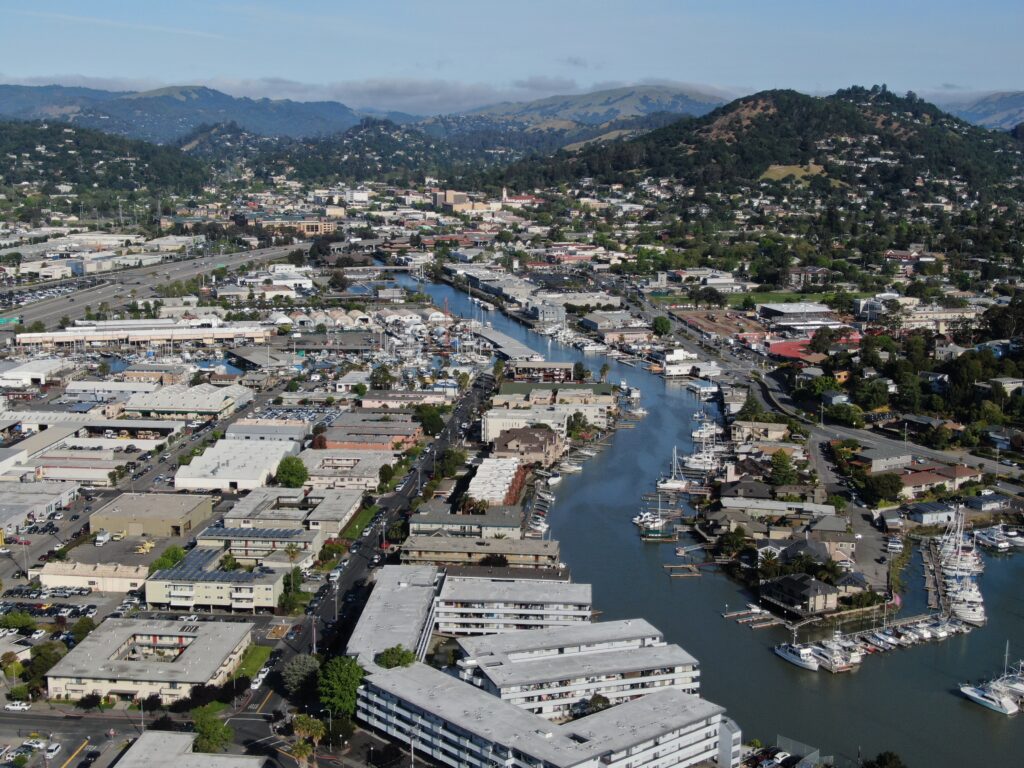
In Chelsea, Mass., the grant will help turn the community’s vision for a vibrant and accessible Mill Creek waterfront into a reality – including plans to address climate impacts, remediate contamination, and create new green spaces with the input and engagement of community residents.
“We are delighted to receive a grant from Partners for Places,” said Roseann Bongiovanni, executive director of GreenRoots. “For nearly 30 years, GreenRoots has been working to transform what once was a forgotten and untouchable part of our waterfront, along the Mill Creek, into a more accessible, ecologically rich area that offers walking trails, salt marsh, passive and active recreation in Chelsea. While we have achieved much, there is still much work to do."
Two communities selected for the latest round Partners for Places will receive dedicated funding specifically for green stormwater infrastructure projects.
San Diego, Calif., will use the funding to generate a community-centered scope for green stormwater infrastructure improvements to the under-invested and physically compromised Chollas Creek Watershed, and to support a watershed-focused partnership between the city, community-based organizations and local landscape design and engineering firms.
In Seattle, Wash., the grant will help strengthen community collaboration and ensure that planned green stormwater infrastructure investments in the southwest Seattle neighborhoods of Delridge benefit those who have lower access to opportunity and greater displacement risks.
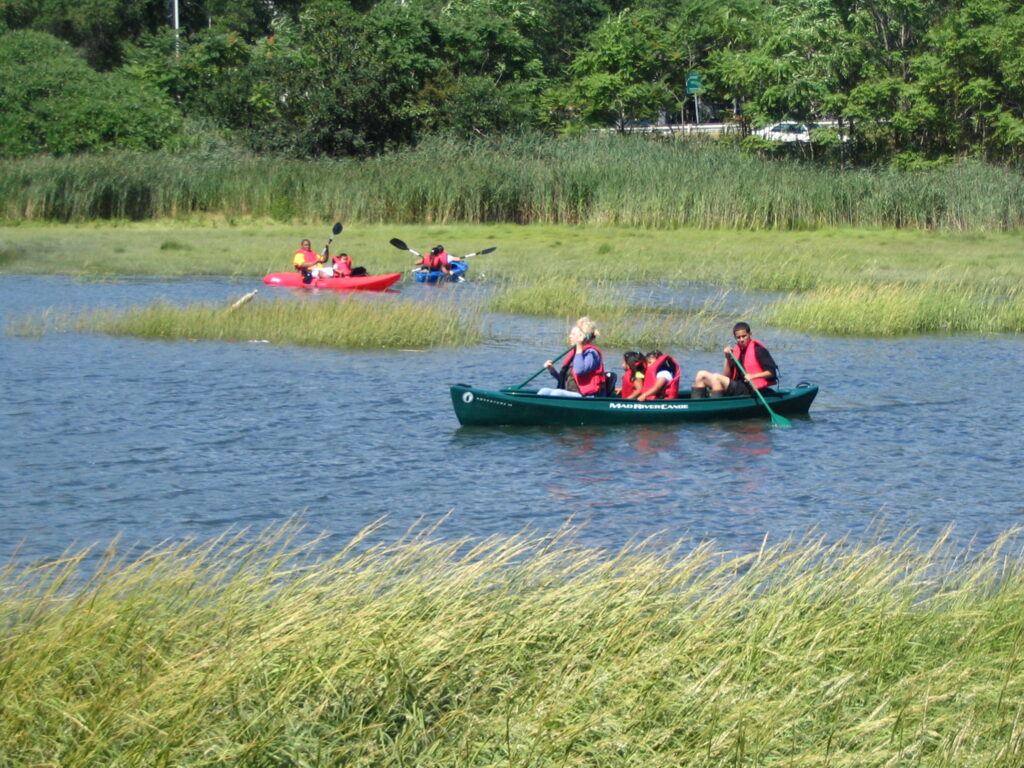
Grants at a Glance
The latest Partners for Places grant recipients, project descriptions, matching funders and frontline community groups are:
- Benton Harbor, Mich. ($74,740): To support the Benton Harbor Justice 40 Initiative to develop local and regional leadership for climate action, restorative community partnerships, and fund development in an environmental justice community. Frontline community groups: Benton Harbor Community Development Corp., West Michigan Sustainable Business Forum, and Project NEED Foundation. Matching funder: Americana Foundation ($25,000).
- Charlottesville, Va. ($180,000): To support Just Food, Just Climate, a collaborative partnership that cultivates relationships, skills, and action at the intersection of food and climate justice. Frontline community group: Cultivate Charlottesville. Matching funders: Charlottesville Area Community Foundation and Hartfield Foundation ($180,000).
- Chelsea, Mass. ($150,000): To implement their community’s vision of waterfront access, climate justice and land sovereignty along Mill Creek. Frontline community group: Matching funder: Barr Foundation ($75,000).
- Cuyahoga County, Ohio ($180,000): To foster vibrancy and climate resiliency by repurposing 2.6 acres of vacant land, formerly a Cleveland Metropolitan School District site, into a park. Frontline community groups: Village Family Farms, Little Africa Food Co-Op, Western Reserve Land Conservancy, Famicos Foundation. Matching funders: FirstEnergy Foundation, Bank of America (Cleveland), Reinberger Foundation, Dominion Energy Charitable Foundation ($190,000).
- Flagstaff, Ariz. ($70,000): To map green space/schoolyard infrastructure and access to advance equitable district-wide climate justice for all in response to Flagstaff’s Climate Action & Neutrality Plans. Frontline community groups: Ita Hopi Lavayi, Flagstaff High School Native American Club, Flagstaff Unified School District, Terra BIRDS. Matching funders: Arizona Community Foundation of Flagstaff and GeoFamily Foundation ($44,00).
- Harris County, Texas ($150,000): For climate justice planning that aims to co-create local, implementable solutions with frontline residents who have been most impacted by climate hazards and disasters. Frontline community group: The Coalition for Environment, Equity, and Resilience (CEER). Matching funder: Jacob and Terese Hershey Foundation ($100,000).
- Marin County, Calif. ($180,00): To create lasting capacity for frontline community involvement and leadership in local climate resilience decision-making in Marin County. Frontline community groups: Canal Alliance, Play Marin, Multicultural Center of Marin, and Marin City Climate Resilience & Health Justice. Matching funder: San Francisco Foundation ($180,000).
- San Diego, Calif. ($120,000): For equity-driven Green Infrastructure planning for the Chollas Creek Watershed, including supporting a partnership between the city, community-based organizations and local landscape design and engineering firms and generating a community-centered GSI Plan scope for the watershed region. Frontline community groups: Groundwork San Diego-Chollas Creek on behalf of the Chollas Creek Coalition. Matching funder: The Hervey Family Fund at San Diego Foundation ($60,000).
- Seattle, Wash. ($180,000): To facilitate input into two green stormwater infrastructure projects, develop a maintenance and programming plan, and fund improvements at a site to build trust and demonstrate responsiveness. Frontline community group: Delridge Neighborhoods Development Association. Matching funder: This local funder has requested anonymity ($90,000).
- Waco, Texas ($150,000): To provide education and infrastructure for composting and gardening with goals for food waste recovery, food production, and methane reduction at the local landfill. Frontline community groups: Mission Waco Urban REAP, Da' Shack Farmers Market Health and Wellness, Inc., Family of Faith Worship Center, Global Revive, and World Hunger Relief Institute, and Baylor University. Matching funder: Cooper Foundation ($150,000).
About Partners for Places
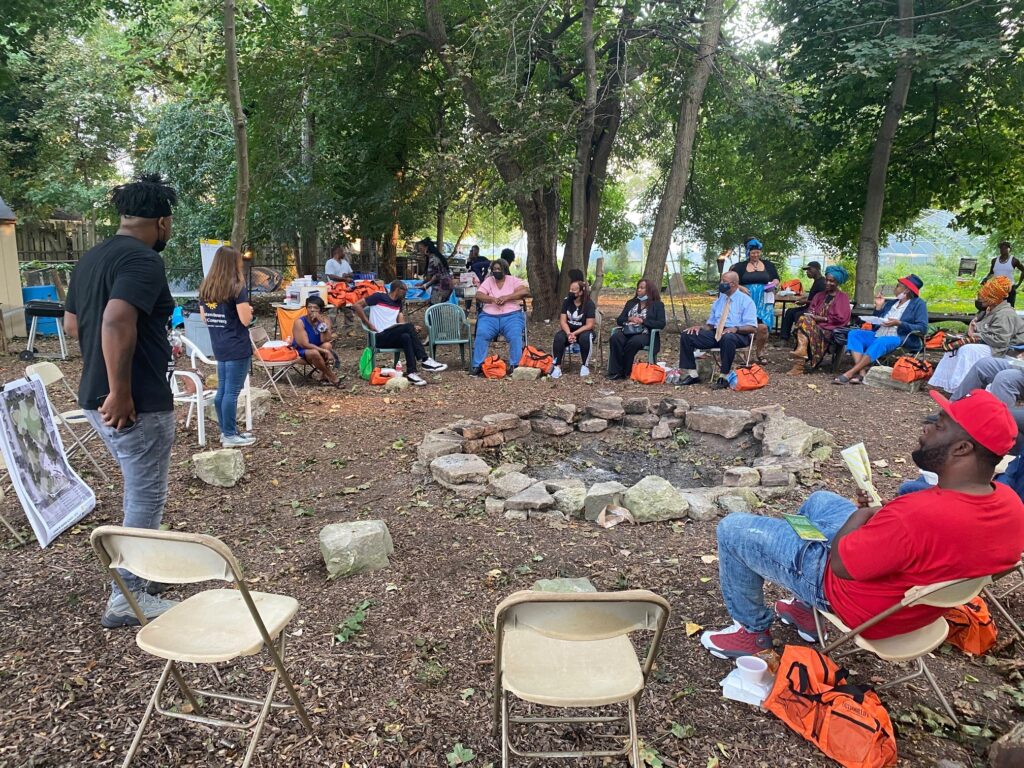
To date, Partners for Places has awarded $10.7 million across North America in this successful matching grant program, leading to more than $21.5 million in investments.
Partners for Places, led by The Funders Network (TFN) in partnership with the Urban Sustainability Directors Network (USDN), will provide $1,434,740 in funding to these 10 communities through the grant program. With contributions from local matching funders, a total of $2,528,740 will be committed to fund sustainability projects in these selected communities. This grant cycle includes a total of $450,000 in Partners for Places grants and local matching funds awarded to the green stormwater infrastructure projects in San Diego and Seattle.
The matching grant program brings national funder investors together with place-based funders to support equitable, sustainable climate action and green stormwater infrastructure projects. The program is currently supported by The JPB Foundation, The Kendeda Fund, The Kresge Foundation, New York Community Trust, and the Pisces Foundation.
Partners for Places FAQ's

→ Where is Partners for Places making an impact?
Read previous grant announcements in our Meet the Grantees section and explore the Partners for Places Grantee Map.
→ Where can I learn about completed Partners for Places projects?
Visit the Partners for Places Idea Bank to explore what grantees are doing, learning and sharing.
For more information about Partners for Places, please reach out to Ashley Quintana, ashley@fundersnetwork.org.
The Power of Space & Time: Five #TFN2023 takeaways from a PLACES alum
BY Maranda Witherspoon Richardson, TFN PLACES Alum
This March I had the opportunity to take part in TFN’s amazing annual conference, which took place in New Orleans. This was the first time since the pandemic began that I’ve been able to reunite with some of my most favorite people on the planet: Longtime friends and peers across the philanthropic sector who are committed to creating thriving and just communities. As an alum of TFN’s 2015 PLACES Cohort who is also working closely with TFN’s Inclusive Economies working group, I was thrilled to see conversations around racial equity and justice take center stage, especially within the context of addressing systemic economic inequities and breaking barriers to prosperity.
The learning agenda for TFN’s 2023 Annual Conference: Ignite Action was packed with so many inspiring and enlightening moments that I’m still unpacking weeks later.
Here are some of my takeaways from our time together in New Orleans.
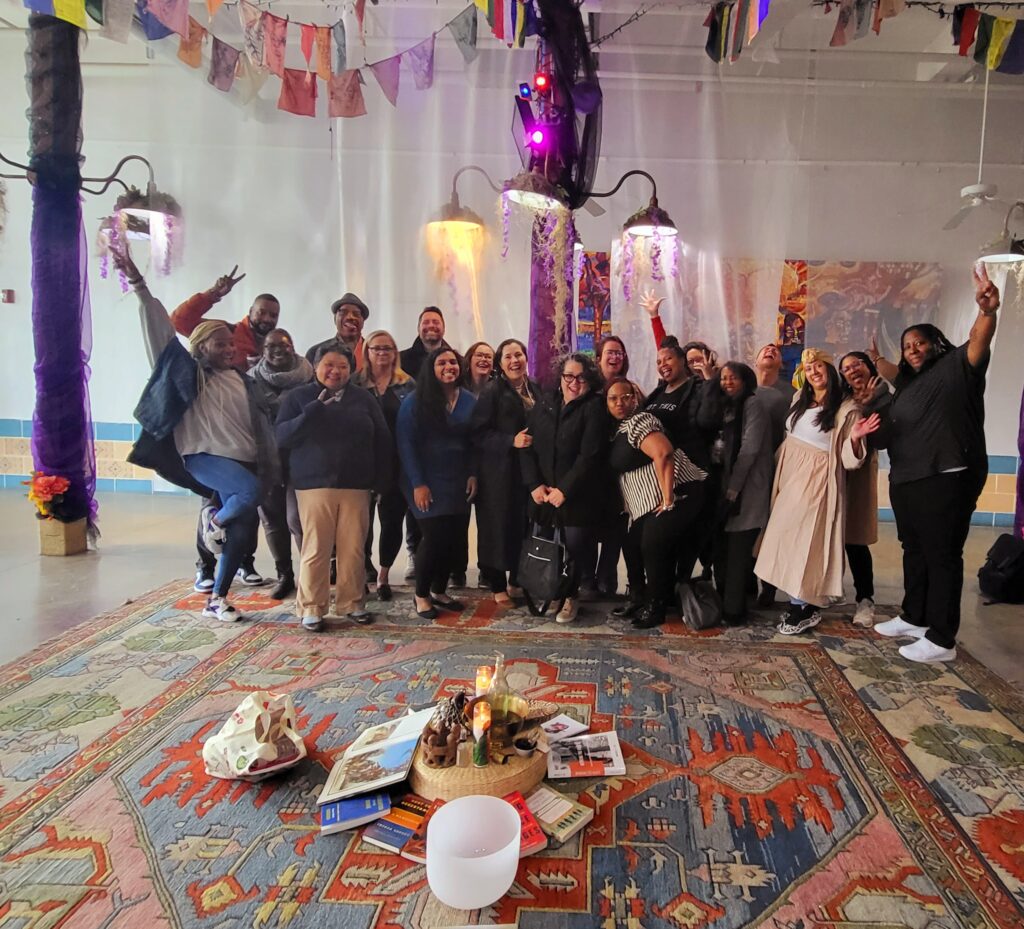
1. There is a need for more safe spaces to “be,” receive support, and develop personally and professionally!
PLACES alumni came together for a half day on the Sunday before the start of the conference for food, fellowship and the opportunity to learn from place. This year, alumni had the opportunity to experience facilitated discussion that centered community, connections, and (improved) mental health toward restorative justice and liberation. This space and time are powerful given the work, our commitment to advancing equity, and the need to center ourselves in order to show up for the communities we serve. As I reflect on our time together, I am reminded: Our wellbeing is just as important as the work!
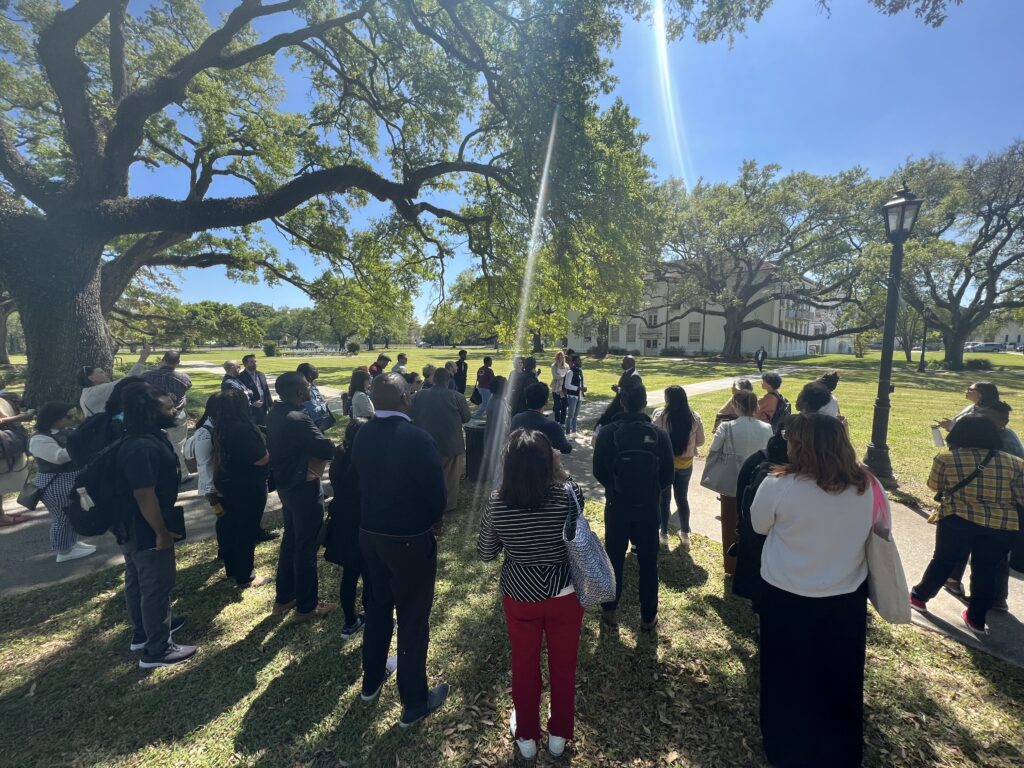
2. Institutional partnerships can play a vital role in what it looks like to shape and support community.
I had the privilege of attending the “Institutional Partnerships to Ignite Action” Mobile Workshop. The workshop created an opportunity for attendees to hear from leaders and residents committed to the development in New Orleans’ Gentilly and New Orleans East neighborhoods. The workshop elevated the importance of centering the voices of residents and stakeholders, collaboration and partnerships among public/private and universities and the need to prioritize economic inclusion as cities are planning for urban renewal and growth. If you are interested in exploring what this work looks like in the South, or what it can look like in your community, consider joining us on June 28-29 in Atlanta for TFN’s Inclusive Economies 2023 Meeting: Pathways to Power & Prosperity, which will take place at Morehouse College.
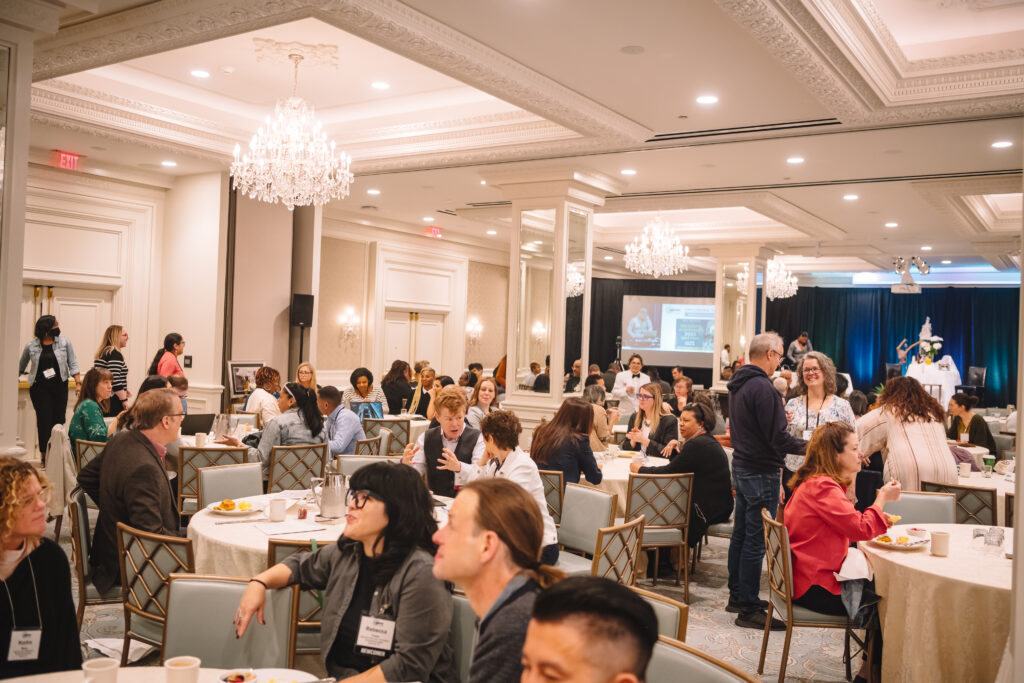
3. Creating spaces and time to share and learn from others during conferences is a great way to learn and understand what is happening across various communities.
This year I facilitated the Inclusive Economies ad hoc breakfast meeting. As a newcomer to the inclusive economies work, it was great to meet attendees and hear from them about the awesome work they are leading and supporting. I realize this was likely the first in-person conference for many since the pandemic. The opportunity to connect and network face to face was invaluable. What I quickly observed as attendees shared brief summaries about their work, is that we do not need to do the work the same in order to achieve the desired outcomes. Rather than focus on process, the better questions areabout how we can best prioritize place, economic justice, job creation, access to capital, entrepreneurship, etc. for Black and brown communities in order to achieve economic inclusion. I look forward to the continued discussion as we prepare for the Inclusive Economies meeting in June in Atlanta.
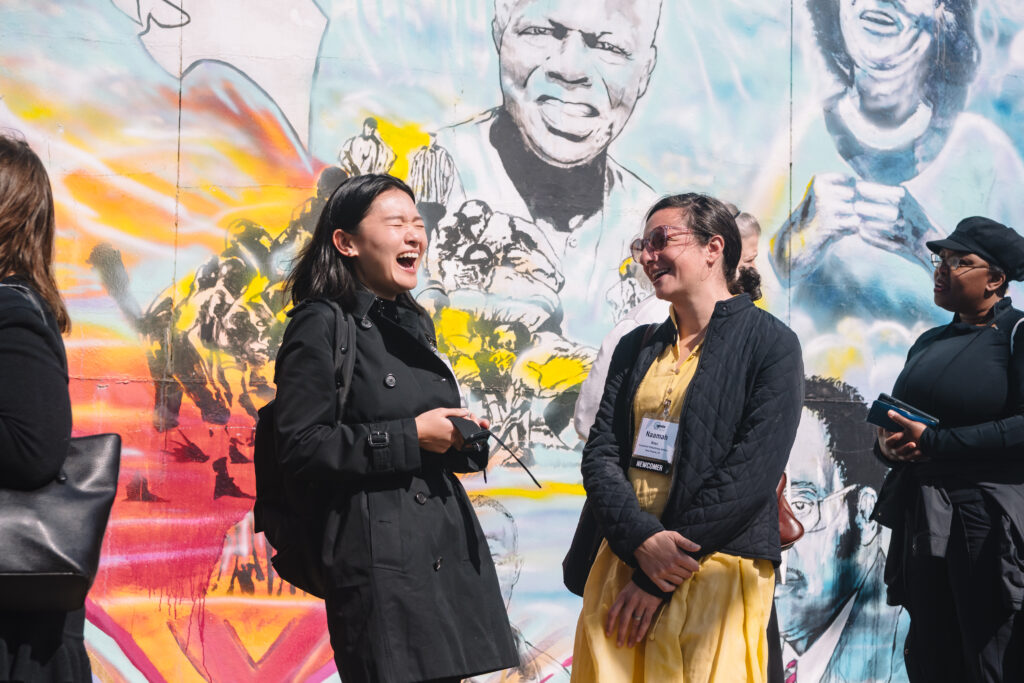
4. OMG, the increased number of newcomers at this year’s conference!
This year was my first year attending the conference as a TFN contractor and oh boy was it a different experience!(In a good way, of course!) I normally attend as a PLACES alum eager to learn, reconnect with other PLACES alumni and network with attendees. Although I attended in a different capacity this year, I was still able to go about my normal routine. However, this year I was very intentional about engaging with newcomers. As an introvert, I was reminded of the first time I attended a TFN conference and how welcoming people were to me, and I wanted to offer that to others. What I found was a thread among the newcomers I met, they felt welcomed and aligned, the speakers and sessions were what they needed, and they plan to return. Some even inquired about PLACES and membership!
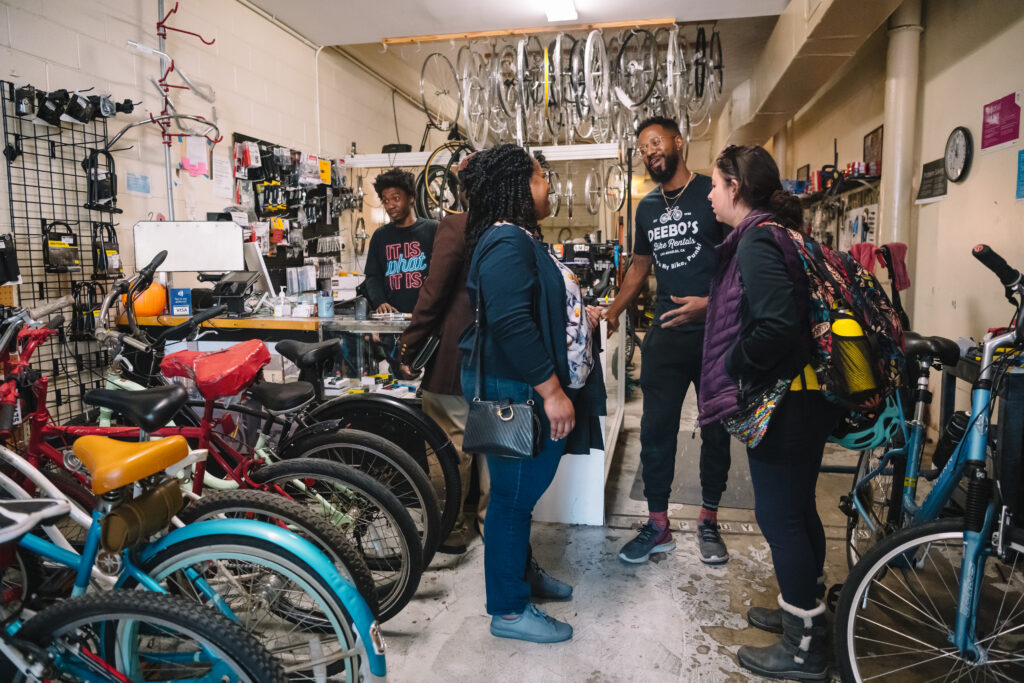
5. People of color were centered and present!
TFN staff and the planning committee did a phenomenal job planning sessions, speakers, venues, workshops, etc. But for me, it was the thoughtfulness around centering people of color throughout the conference. From session facilitators to vendors, venues, entertainment, plenary speakers, etc. attendees were able to experience place and culture. I found myself scanning rooms and noticing the increase in attendees of color and smiling on the inside because in that moment, I felt seen and heard! I challenge us all to think about intentional and thoughtful ways to center PoC throughout our work and lives.
ABOUT THE AUTHOR
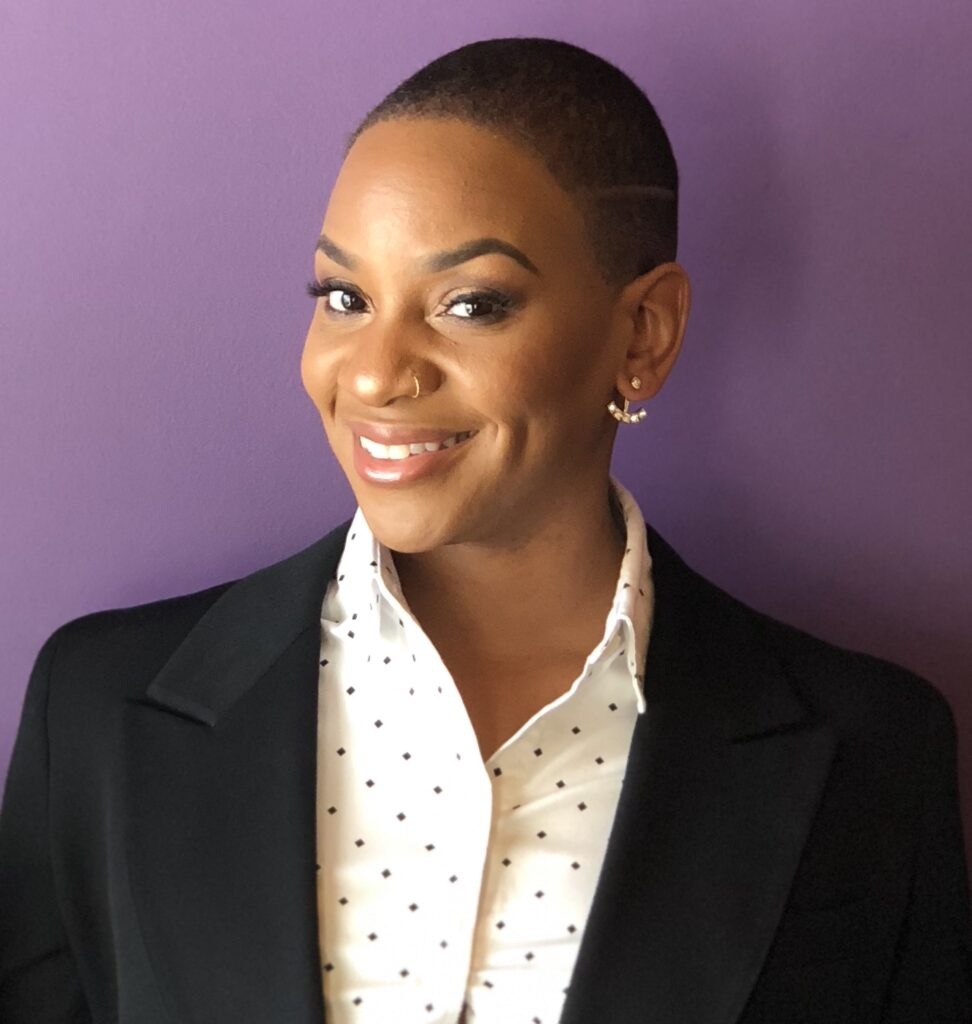
Maranda Witherspoon Richardson is a 2015 PLACES Fellowship alum. Formerly of the Missouri Health Foundation, she is now the founder and principal of MWR Coaching and Consulting. She helped facilitate TFN’s 2022 team strategy retreat and is working with the network’s Inclusive Economies working group to plan its 2023 Meeting in Atlanta in June.



